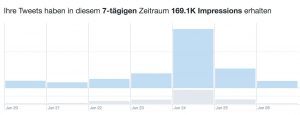By Julian Dierkes
As we wrote in May, this was the first election since the existence of Mongolia Focus that none of our regular writers were in-country. Our “coverage” of the election was thus a bit different.
Why Cover the Election?
In that earlier post, I noted how elections focus attention to Mongolia to some extent. Our motivation is thus in part the opportunity to offer some deeper reflections on the election, but also on Mongolian politics more generally, to a wider audience than we are able to reach in non-election times.
A secondary motivation has also been in the past that we have often found Mongolian election analyses in the press to be somewhat unsatisfying. That motivation led to the extensive posts we wrote in the 2012 parliamentary election, for example. To me, this past election was a big change in that regard as Mongolian media engaged much more with some of the substantive questions that we have been asking ourselves as well. Kudos in particular to Ikon.mn whose coverage has been terrific in this regard: up-to-date, well-presented, substantive. It has also been terrific to see that some Mongolian academics have been more active with commentary in this election than previously. Of course, there were also a number of academics who ran as candidates, so perhaps their colleagues were inspired to comment. It was particularly nice to see E Gerelt-Od comment in the media as several of us have known and worked with Gerelt-Od for a long time.
A final motivation is that blogging is always a form of (public) note-taking as well and a way to try out some questions that we might address in a more academic fashion in the future.
Posts
This will be the 50th post that has focused on the 2020 election from the first post in September 2018 that looked at possible implications of the then-prevalent sense of crisis, through the lead-up to candidate selection, to a nearly-two-week period of publishing a post every single day during the campaign (June 9-22) to post-election analyses that will continue to come. Even with some of that post-election analysis, we’re unlikely to read the 60 posts that we had written about the 2012 election. But for that election in particular, we found coverage of the results on the election day in the media to be frustrating so that we were turning results as we watched them on TV into seat distributions, etc. by hand, tasks that Mongolian media companies were much better equipped in the 2020 election to carry out. See also the reflections on the 2012 election “season” that I offered.
All of us four regular writers wrote posts. We were really happy to welcome a number of first-time and returning guest authors to Mongolia Focus.
In this listing note that we have managed to have a mix of residents and non-residents of Mongolia (by birth or otherwise), and a mix of women and men represented.
Readers
As before, the election attracted a significant readership. A typical day usually brings just under 100 visitors to our pages, but the entire election period brought significantly larger numbers including a June 24 peak of 650 pages viewed.
There is a similar pattern, even more pronounced, in impressions of my tweets:
Zoom Panels
Not because of the election per se, but because we have all been forced online in some of our scholarly activities, we held four pre- and post-election Zoom panels. On June 1, I offered a preview of the election, Bulgan, Marissa and I participated in the discussions during the election campaign: June 12 and June 22, as well as in the post-election analysis. We were delighted to have additional panelists joining us: O Batbold (June 12), Robert Ritz (June 22), B Otgontugs (June 29). Recordings of these discussions can be found on YouTube.
A total of over 120 participants joined us online for these discussions and the recordings have been viewed over 1,000 times with around 15% of viewers continuing to watch through the end of the recording.



 Follow
Follow